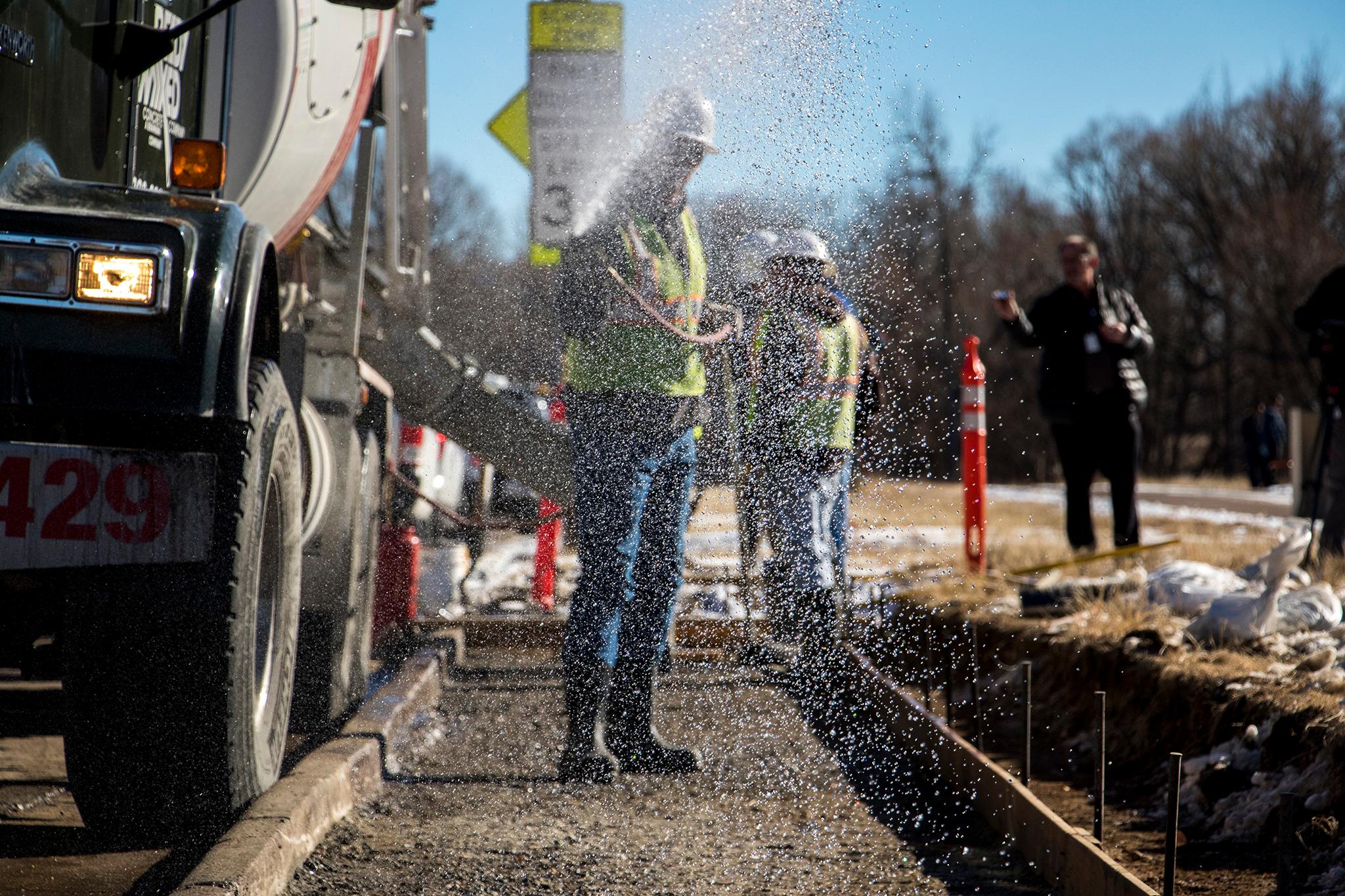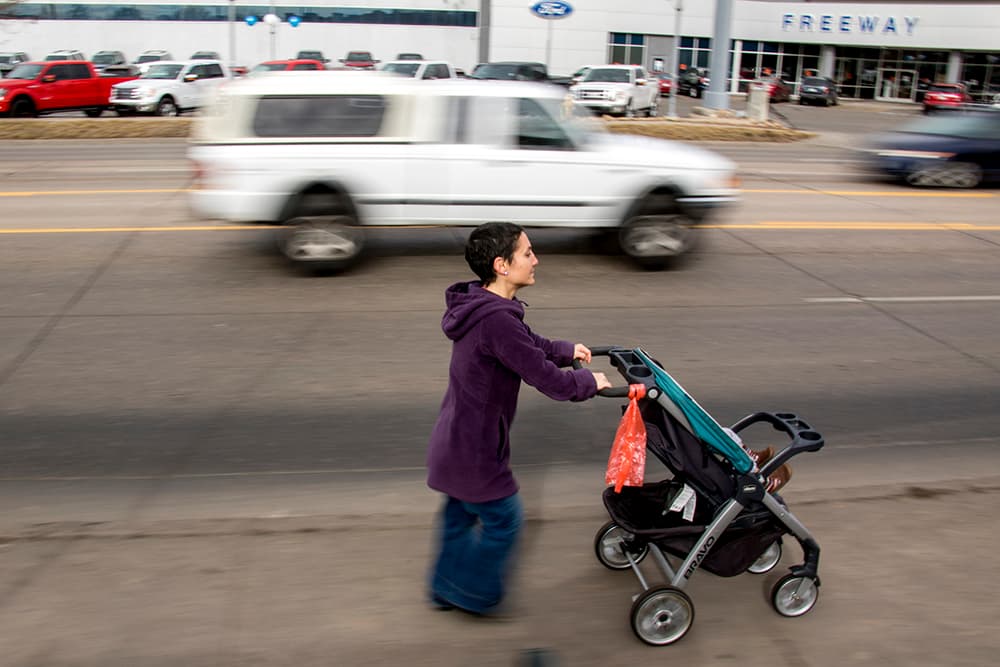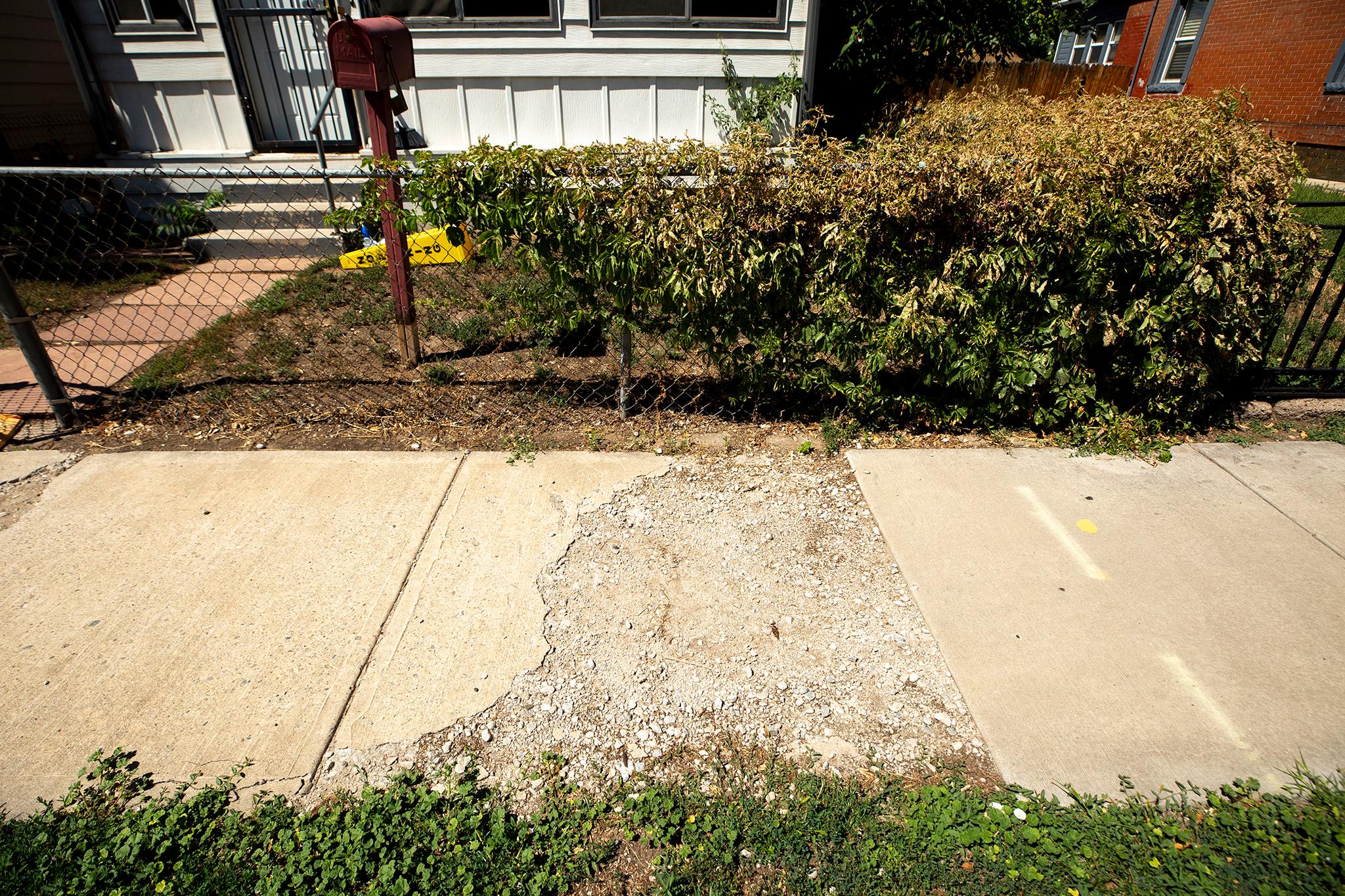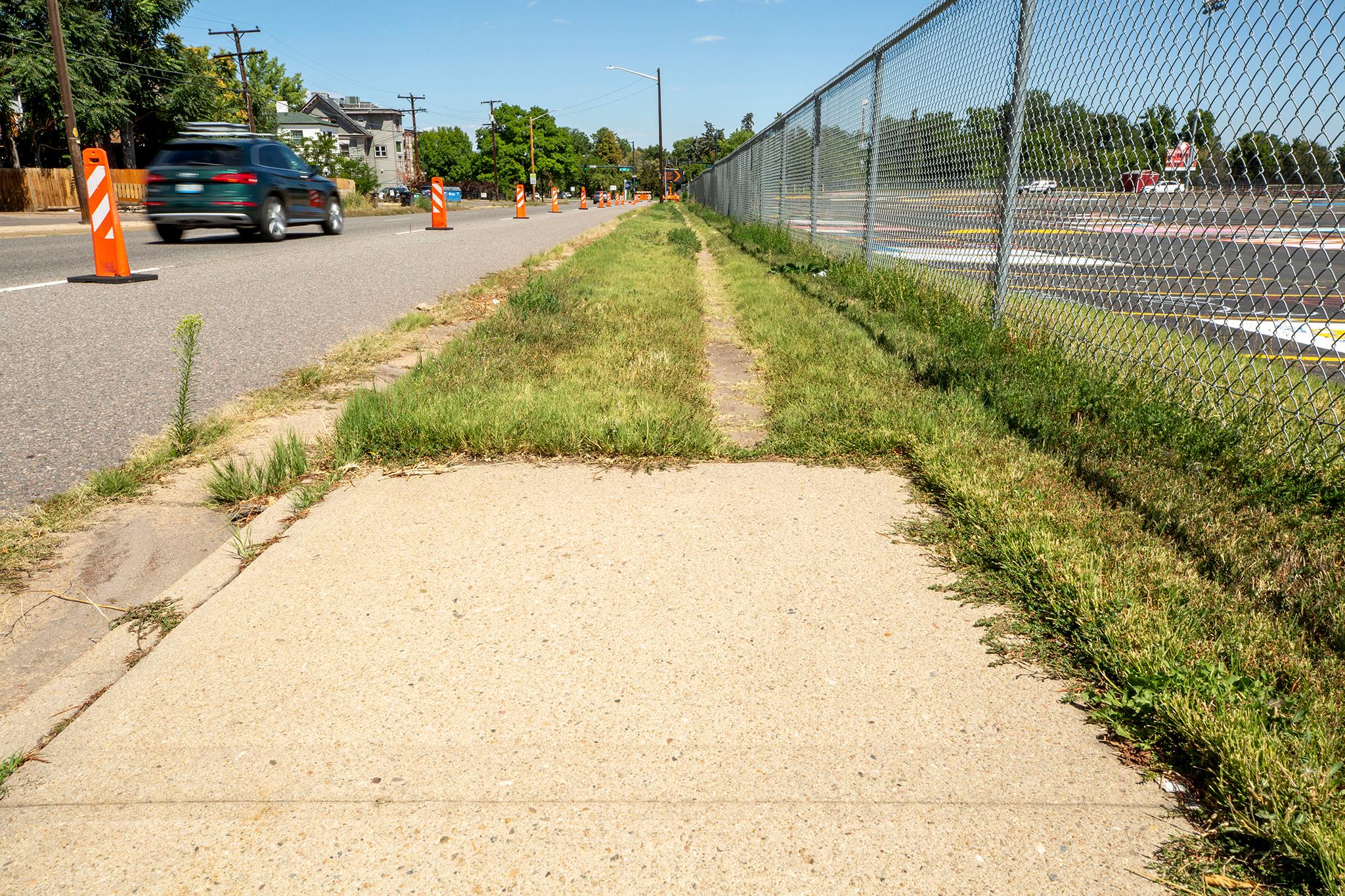If you report a pothole, the Denver Department of Transportation and Infrastructure promises to fix it within three days. If you report a broken sidewalk, it could take around 50 years to get fixed, according to a report by the city auditor.
That's because, unlike roads, city sidewalks are your responsibility to fix even though they are in the public right-of-way. Home and business owners who border Denver's walkways are by law responsible for fixing and building them. The approach dates back to the 1950s when the city government fell in love with the automobile and sort of decided that walking was over, said Jill Locantore, executive director of the Denver Streets Partnership, the city's foremost bear-poker on sustainable transportation issues.
"And it turned out that, you know, not only is that impractical -- there's still a huge portion of the population that can't drive -- but also people like walking," Locantore said. "Walking is a pleasant and efficient way to get around. And it makes zero sense that we should provide no infrastructure for that most basic form of human movement."
Walking is also an official climate priority of the Hancock administration, which has committed to building a city where half of all commutes are made without driving a car solo. The latest census figures put solo driving at 73 percent of all city commutes!

That's one of the reasons voters approved $48 million to start filling in 300 miles worth of gaps in the sidewalk network. Denver also dipped its toe into the sidewalk game in 2018 with a law, sponsored by City Councilmember and pedestrian Paul Kashmann, that created a fund to help residents pay for their sidewalk repairs. The bucket of money was part of a sidewalk repair program that officials thought, at the time, would enforce the law and ease the financial burden on locals, sending the city's sidewalk woes walking.
It didn't work.
Denver Auditor Tim O'Brien documented as much in a biting assessment that found Denver's slow pace and inefficiently set-up program needed serious adjustments if it was going to deliver on what was promised. And that's just for the sidewalk repair piece. Completely building out sidewalks would take hundreds of years at the current pace, Locantore said. Kashmann, who helped develop the city's first if inadequate permanent funding source for walkways, agreed.
"We have made more progress on rebuilding our pedestrian infrastructure in the past five years than since the founding of our city," Kashmann told Denverite. "Unfortunately, while retro-fitting our city is daunting, it must be done and our pace has been far too slow."
The city's next stab at providing basic walking infrastructure will more closely resemble how it handles roads.
Nicholas Williams, deputy chief of staff at the city's streets department, said the city's next version of its sidewalks will address the "friction points" between the city's current law, which puts the onus on homeowners, and the auditor's recommendations, which directs officials to assess whether making property owners responsible and liable for sidewalks "is reasonable."

"We need to look at how this is set up in the ordinance and where these responsibilities lie," Williams said.
He understands why members of the public are frustrated, but said the transportation department needs to thread the needle; Los Angeles set a scary precedent for governments when it said they would bear responsibility for sidewalks. In the 1980s, L.A. used federal grants to start the work but when the money dried up, it got sued for $1.4 billion.
The fix lies in making the public right-of-way a responsibility of the public sector and actually funding it -- with city dollars, Locantore said.
"We're asking them to take over responsibility for sidewalks, but also establish sustainable funding source so that you can in fact build out the network and not end up in a situation like Los Angeles," she said.
Transportation officials are looking into a permanent and significant stream of money to build and maintain sidewalks -- just like the streets department uses taxpayer dollars to handle roads, Kashmann said.
"I do believe that we need to have a system in which people pay a small amount each month, or quarterly, so when their sidewalks need repair, they are covered. Because eventually, all property owners will need to repair their walks," Kashmann said. "And yes, we certainly need to address missing walks, and I don't know if it's fair to expect property owners to install walks on their property when for decades we've ignored the issue. Those bills are far too steep for many homeowners."

Kashmann and his colleagues have been mulling sidewalk taxes and fees since 2018. More recently, Kashmann, along with city councilmembers Chris Hinds and Jolon Clark, have been discussing next steps with Mayor Michael Hancock's transportation department.
But the councilmember also said the transportation department has canceled the last two meetings.
"I do not minimize the complexity or cost of this task, but it is simply one that we have to begin addressing methodically, efficiently and fairly," Kashmann said. "I hope our agency partners will redouble their efforts as willing partners. We can try to force things on our own, but I think things get done better as a more collaborative 'we.'"
Williams, with the Hancock administration, said everything is on the table. Some options include fees, others don't, he said. Wherever the streets department lands, it plans to get things rolling at the end of this year.
But there's another major wrinkle. The city's initial assessment of the sidewalk system was dire, with a cost of $1.3 billion to fix and an estimated 40 percent of streets with either missing or subpar sidewalks, according to the Denveright Pedestrian & Trails plan. Williams said that while the city does not have new figures, its experiment with the sidewalk repair program made clear that DOTI underestimated the breadth and depth of the problem.
"The conditions are worse than we initially anticipated," he said.













